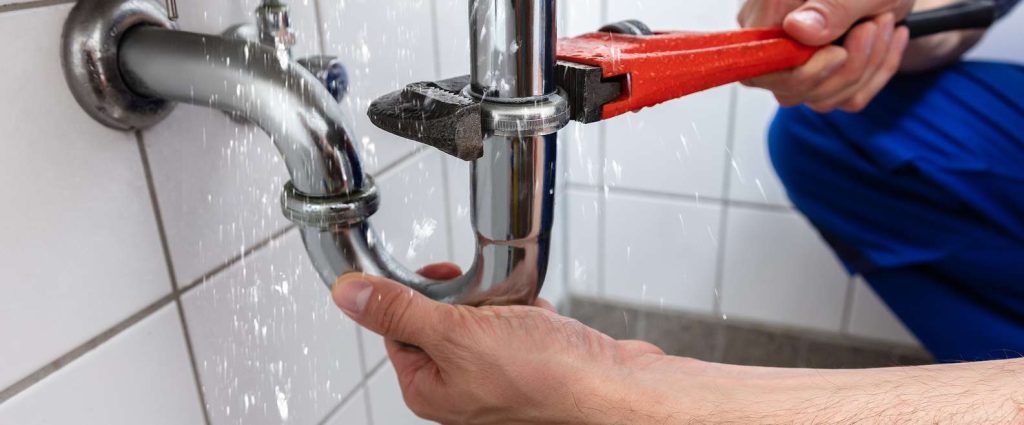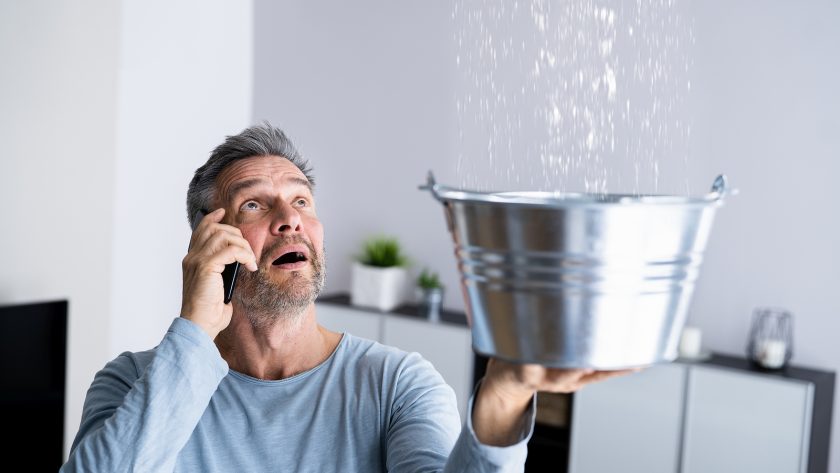Leaking pipes are a common household issue that can cause significant damage if left unaddressed. There are several reasons why pipes can develop leaks, ranging from aging and corrosion to high water pressure and tree root intrusion.
Regardless of the cause, it is crucial to fix leaking pipes promptly to avoid further complications. Water leakage can lead to structural damage, mold growth, increased water bills, and even health hazards.
This article explores the common causes of leaking pipes and highlights the importance of immediate repairs to prevent extensive damage and mitigate potential risks.
The Most Common Causes of Leaking Pipes
There are many factors that can contribute to plumbing pipes leaking. From old age to blockages and poor maintenance. Here are some of the most common reasons that cause leaking pipes.
Ageing and corrosion
Over time, pipes can deteriorate and corrode, especially in older homes. Corrosion weakens the pipes, leading to leaks and eventual failure.
High water pressure
Excessive water pressure can put strain on pipes, causing them to develop leaks or burst. This can occur due to issues with the municipal water supply or faulty pressure regulators within the home.
Temperature changes
Extreme temperature fluctuations, such as during winter freezes or hot summers, can cause pipes to expand and contract. This repeated stress can lead to cracks and leaks.
Tree roots
Tree roots seeking water sources can infiltrate underground pipes, causing them to crack or rupture. This is especially common in older homes with clay or concrete sewer lines.
Poor installation or inadequate maintenance
Improper installation of pipes or fittings, such as using low-quality materials or incorrect techniques, can contribute to leaks. Additionally, a lack of regular maintenance, such as neglecting to fix small leaks or ignoring signs of pipe degradation, can lead to larger issues over time.
Clogs and blockages
Buildup of debris, grease, hair, or other materials can accumulate within pipes and cause blockages. The pressure from the blockage can lead to leaks or pipe bursts.
Pipe movement or shifting
Ground movement, such as earthquakes or soil settlement, can cause pipes to shift or move. This movement can strain connections and joints, resulting in leaks.
To prevent or address leaking pipes, it is important to perform regular maintenance checks, promptly address any signs of leaks (e.g., dampness, discoloration, mold growth), monitor water pressure, and consider professional inspections and repairs if necessary.

What should you do if you have a leaking pipe?
If you have a leaking pipe, it’s important to take immediate action to prevent further damage and water wastage.
Here are the steps you should follow:
Shut off the water supply
Locate the main water valve in your home and turn it off. This will stop the flow of water and prevent additional water from leaking out. If the leak is isolated to a specific fixture or appliance, you may be able to shut off the water supply to that particular area.
Drain the affected pipes
Open faucets and flush toilets to drain any remaining water in the pipes. This will help reduce the amount of water that could potentially leak out once you start repairing the pipe.
Assess the damage
Examine the leaking pipes to determine the extent of the damage. Is it a small pinhole leak, a crack, or a burst pipe? This assessment will help you decide the appropriate course of action.
Temporary fix
If the leak is minor and you need to temporarily stop the water flow until you can get professional help or purchase repair materials, you can try using plumber’s tape, pipe clamps, or pipe repair kits available at hardware stores. These temporary fixes can provide a temporary solution until a permanent repair can be made.
Call a plumber
It is advisable to contact a professional plumber to assess and repair the leaking pipes. Plumbers have the expertise, tools, and materials to fix the issue properly and prevent future leaks.
Clean up and dry the area
After shutting off the water supply and making temporary repairs, clean up any water and dry the affected area thoroughly. Use towels, mops, or a wet-dry vacuum to remove water, and use fans or dehumidifiers to aid in the drying process. This helps prevent water damage, mold growth, and further deterioration of the pipe.
Leave it to the professionals
Remember, dealing with leaking pipes can be potentially hazardous and may require specialised knowledge. If you’re unsure or uncomfortable with handling the situation, it’s best to contact a licensed plumber with strong online reviews such as Service Today, to ensure the proper repair and minimise the risk of further damage.
How to choose a reliable plumber for leaking pipes
When selecting a reliable plumber to fix your leaking pipes, consider the following tips.
Research and check credentials
Before hiring a plumber, conduct thorough research to ensure they are licensed, insured, and qualified to perform the required work. Check if they hold the necessary certifications and if they are a member of any professional plumbing associations. Additionally, read online reviews and ask for recommendations from friends, family, or neighbors who have had positive experiences with plumbers.
Obtain multiple quotes
It’s wise to get quotes from multiple plumbers for your specific job. This allows you to compare prices, services offered, and the estimated timeline for completion. Keep in mind that the cheapest option may not always be the best choice, as quality and reliability should also be considered. Look for a plumber who provides a detailed breakdown of costs, explains the scope of work, and is transparent about any potential additional expenses.
Evaluate communication and customer service
A reliable plumber should exhibit good communication skills and prioritise excellent customer service. Look for a plumber who promptly returns your calls or emails, listens attentively to your concerns, and provides clear explanations about the work that needs to be done. A professional plumber should also be respectful, punctual, and willing to answer any questions you may have. Gauge their professionalism and reliability based on your initial interactions with them.
By following these tips, you can increase your chances of selecting a reliable plumber who will provide quality work, ensure proper problem resolution, and offer a positive customer experience.
